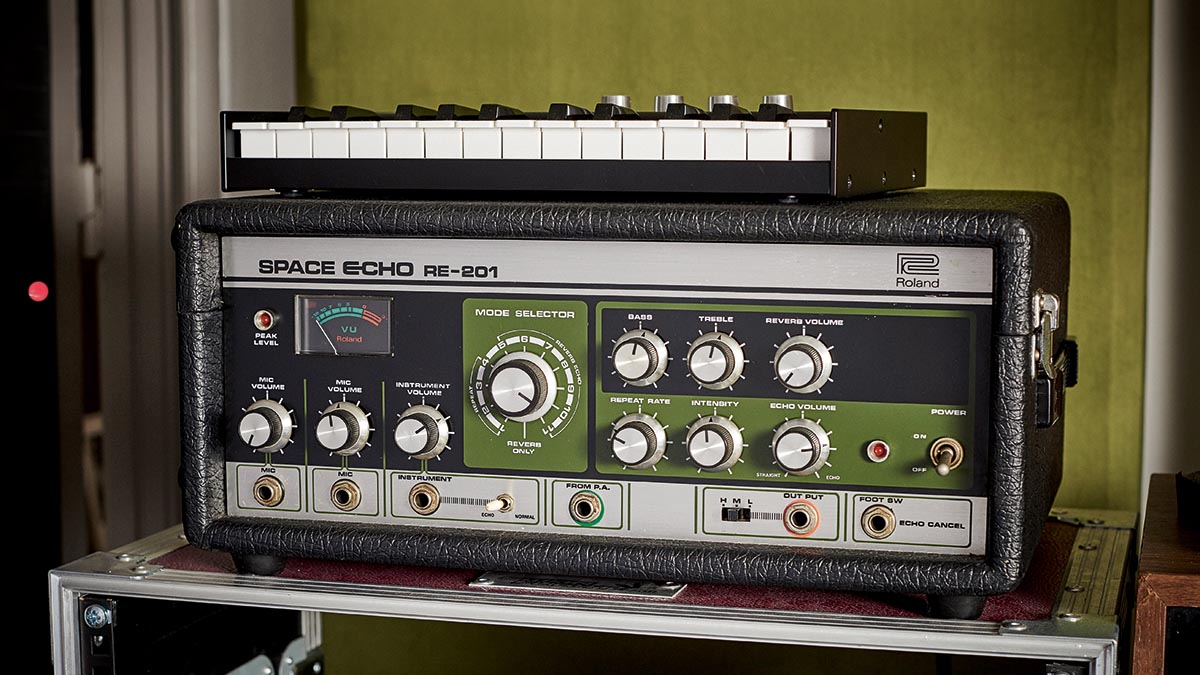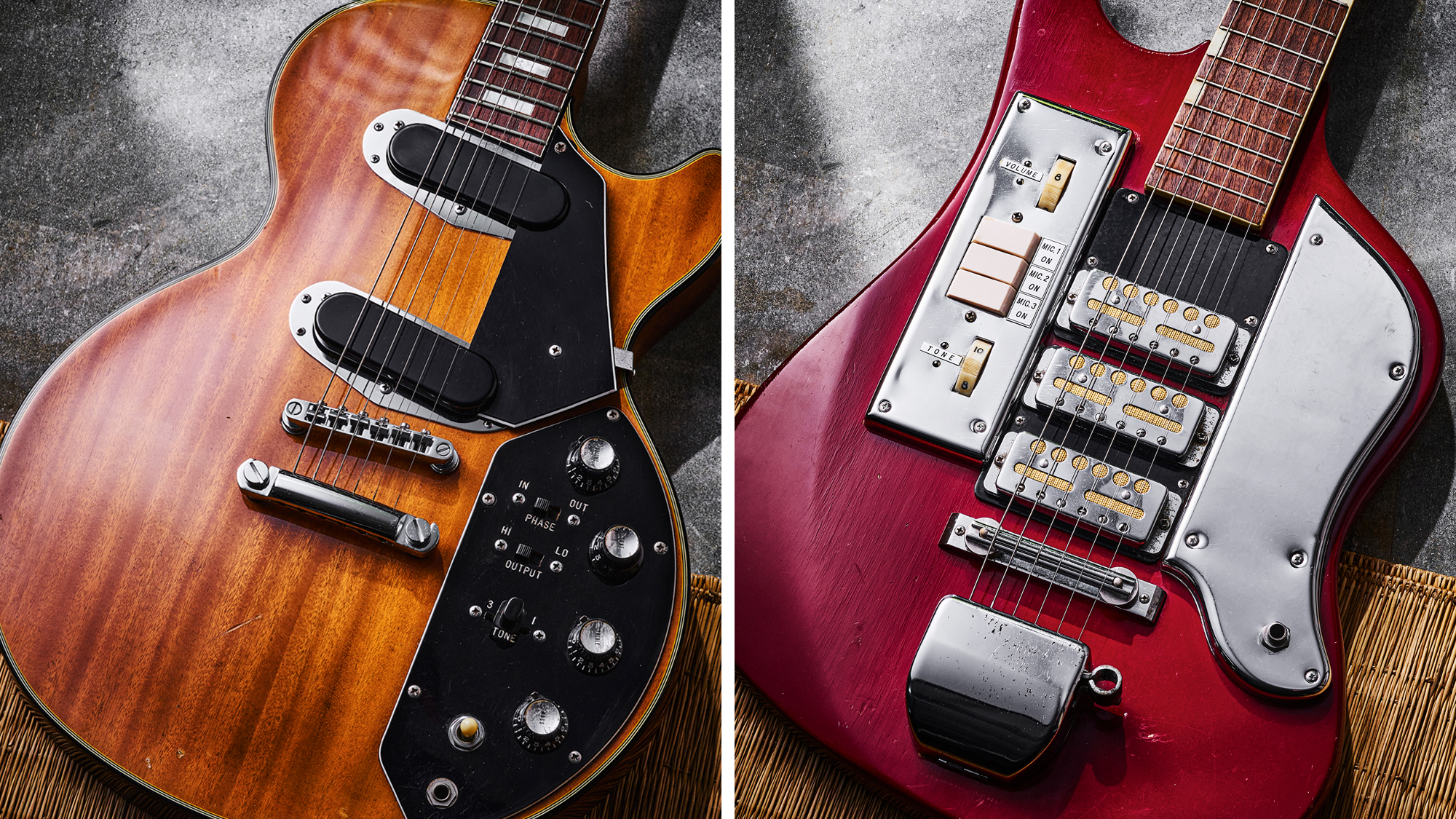The strange, enduring magic of the Roland RE-201 Space Echo
The sounds of the iconic tape delay and spring reverb unit echo through the decades

This year, Roland celebrates its 50th anniversary, having formed in 1972. Some of its earliest products include the AF-100 BeeBaa and AF-60 BeeGee fuzz pedals, and the AD-50 Double Beat fuzz/wah, and by the following year, the first Space Echo tape delay units had arrived in the form of the RE-100 and RE-200. These were quickly superseded by the RE-101 and the now-iconic RE-201 in 1974.
The magic produced by a Roland RE-201 Space Echo unit is hard to capture in words. But, as anyone who has had the pleasure of plugging into one of these vintage effects units knows, for sheer depth and complexity of tone it’s hard to beat.
Genuine spring reverb is often imitated but seldom bettered, while high-quality tape echo is still coveted for its colourful character and richness of sound. Add to this a particularly fat-sounding preamp and a smorgasbord of highly tweakable controls and you have a ticket to tape-echo Eden…
Present are the three standard controls we’ve come to expect on delay units: delay time (Repeat Rate), effectively a tape speed control; delay feedback (Intensity); and delay volume (Echo Volume).
Furthermore, a set of tone controls (Bass and Treble) enables the user to really tweak the flavour of the mix to perfection. Augmented by a Reverb Volume and given the full gamut of selections for all three tape heads, it’s easy to imagine why these flexible devices have been used to create music across multiple genres for nearly half a century.
The Roland RE-201 Space Echo features 12 modes, each selectable via a 12-position rotary knob. Labelled Repeat (without reverb), modes 1 to 3 engage tape heads 1 to 3 respectively, while mode 4 enables heads 2 and 3.
Labelled Reverb Echo, modes 5 to 11 offer the full range of tape head combinations along with reverb. These options include single head (1, 2 or 3), dual head (1 & 2, 2 & 3 or 1 & 3), and triple head (1, 2 & 3) operation. The 12th mode is labelled Reverb Only.
Get The Pick Newsletter
All the latest guitar news, interviews, lessons, reviews, deals and more, direct to your inbox!
As is often the case with any moving parts, the Roland RE-201 Space Echo needs to be regularly serviced to keep it in the best possible working condition. Having said that, many people actually find they enjoy the idiosyncrasies of an ageing tape, the subtle chorusing effect adding further spontaneity and depth to the sonic picture. Before long, however, the tape will need replacing and the mechanics will require servicing. Such is the nature of these devices.
For that reason, some consider the Roland RE-201 Space Echo to be a double-edged sword. Meanwhile, others are more than prepared to go the extra mile in pursuit of specific sounds that are otherwise difficult to capture. Current digital emulations offer something close (and are decidedly more pedalboard friendly) – but it’s safe to say the RE-201 is ultimately unique.
“I love Roland equipment. I think it’s got such a vibe about it,” said Portishead guitarist Adrian Utley, whose very own Soundgas-serviced RE-201 Space Echo is pictured here. “They live in their own world. They created their own sound and, seriously, nothing sounds like them.”
The Evolution of Roland Space Echo
- 1972: Roland Corporation founded; early pedals released including AF-100, AF-60 & AD-50
- 1973: RE-100 (no reverb) & RE-200 Space Echo units
- 1974: RE-101 (no reverb) & RE-201 Space Echo units
- 1977: RE-301 Chorus Echo unit; reverb, tape delay & chorus
- 1979: RE-150 Space Echo unit (no reverb)
- 1982: RE-501 and SRE-555 (rackmount version) Chorus Echo units; reverb, tape delay & chorus
- 1988: RE-3 & RE-5 Digital Space Echo units
- 1990: RE-201 Space Echo discontinued
- 2007: Boss RE-20 Roland Space Echo RE-201; COSM technology
- 2022: Boss releases RE-202 and RE-2 Space Echo pedals
Rod Brakes is a music journalist with an expertise in guitars. Having spent many years at the coalface as a guitar dealer and tech, Rod's more recent work as a writer covering artists, industry pros and gear includes contributions for leading publications and websites such as Guitarist, Total Guitar, Guitar World, Guitar Player and MusicRadar in addition to specialist music books, blogs and social media. He is also a lifelong musician.











